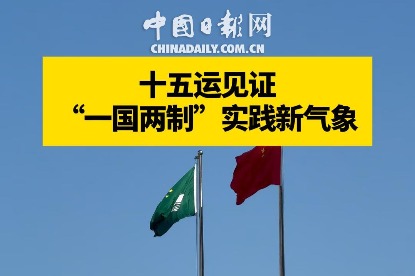Grassroots approach need of the hour

International NGOs must strive to work more closely with local support groups in China
The number of international non-governmental organizations (NGOs) focused on China has been steadily growing, with those from the United States alone around 1,000, according to information provided by the China Charity & Donation Information Center. The 1,000-odd NGOs have injected donations to the tune of nearly 20 billion yuan ($3.18 billion) since 1978.
With such a large presence in China, it is important to understand how international NGOs have influenced the development of grassroots society.
Although many would point to the financial resources shared by international NGOs and foundations, I argue that the most important influence has been the dynamic interaction and adaptation between the global models of international NGOs and the domestic experience of grassroots groups, which have led to the development of a stronger civil society in China.
When international NGOs provide grassroots groups with "best practices" for program design from abroad, assistance with local capacity building and access to a larger network of international funding and experts, they enhance the natural advantages of these groups.
One of these advantages is grassroots groups' familiarity with local conditions and customs impacting project effectiveness. When international NGOs suggest global best practices but allow the practices to be adapted to local conditions and customs, civil society community is strengthened. These projects have lower costs, higher benefits for the community, and build capacity for grassroots groups.
One example of this creative usage is how Shining Stone, an NGO, used participatory approaches to poverty alleviation and community development from the international NGO community and adapted them to the Chinese urban context by conducting repeated rounds of training for government officials and community members.
Another primary advantage of grassroots groups is understanding the cultural background of activities like volunteering and fundraising. This is especially so for international NGOs, as understanding how to engage with Chinese residents and local government officials is otherwise difficult without grassroots partners.
Many international NGOs shared Western best practices of volunteering and fundraising as part of "capacity building" programs, and found that these models were not successful in China. However, grassroots groups are able to adapt Western models to develop new models of volunteering, fundraising and civic engagement.
For example, several groups have emerged primarily to organize volunteers for grassroots groups and international NGOs, such as Western Volunteers Association. These groups do not have programs or advocate for policy goals, but rather concentrate on organizing volunteers who are often paid to "volunteer".
Similarly, fundraising is often conducted by several large foundations, such as the SEE Foundation and the One Foundation, rather than the individual groups. While these models differ in significant ways from the international best practices, the interaction between these models and the Chinese social and political context allow for innovation of new, more effective models.
As many point out, international NGO resources also assist in the development of civil society in China. While financial resources obviously assist groups to build capacity, other resources such as access to technical experts, research and international networks of knowledge serve to greatly enhance the capacity of grassroots groups. This allows grassroots groups to serve as strong, if not exactly equal, partners to government agencies in a public-private partnership model.
This is the model advocated by environmental groups like GEI, using resources from international NGO networks in partnership with government agencies to provide programs and services, such as disseminating low carbon rural energy technologies through carbon finance programs.
I believe that the most significant international NGO contribution has been to enhance existing advantages of grassroots groups through sharing best practices and resources to develop strong civil society that can play a role in policymaking through service delivery and advocacy. More collaboration and interaction among groups will continue this process of mutual development in China.
The author is an assistant professor in the Political Science Department at Middlebury College, Vermont.
Today's Top News
- China warns Japan against interference
- Nation's euro bond sale shows investors' confidence
- No soft landing for Tokyo's hard line
- Commerce minister urges US to increase areas of cooperation
- Strong demand for China's sovereign bonds signals global confidence
- Ministry urges Japan to 'maintain self-respect'






























